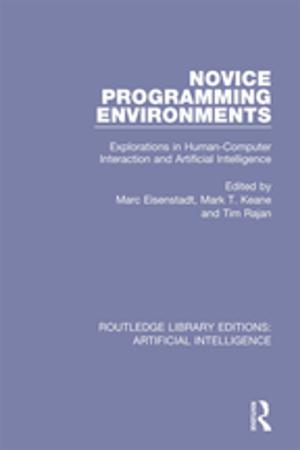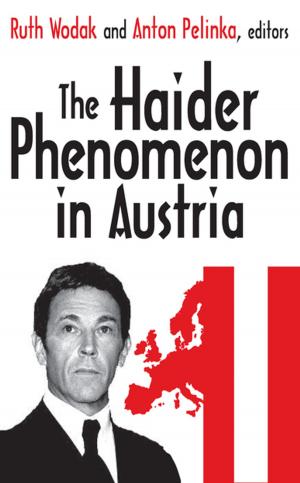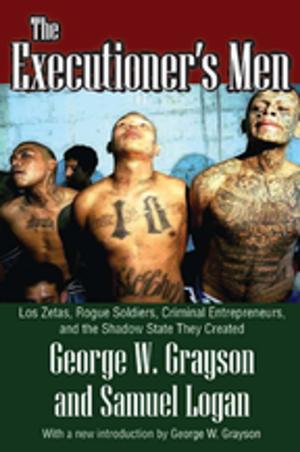Conflict and Peacemaking in Israel-Palestine
Theory and Application
Nonfiction, History, Middle East, Israel, Social & Cultural Studies, Political Science, Social Science| Author: | Sapir Handelman | ISBN: | 9781136836787 |
| Publisher: | Taylor and Francis | Publication: | March 17, 2011 |
| Imprint: | Routledge | Language: | English |
| Author: | Sapir Handelman |
| ISBN: | 9781136836787 |
| Publisher: | Taylor and Francis |
| Publication: | March 17, 2011 |
| Imprint: | Routledge |
| Language: | English |
The Israeli-Palestinian struggle is considered to be one of the most entrenched conflicts in the world. Presenting and evaluating interactive models of peacemaking and the phenomenon of intractable conflict, the book takes an in-depth look into specific models for peacemaking and applies them to the situation in Israel/Palestine.
The argument centers around the idea that a multifaceted approach to peacemaking has the greatest potential to transform an intractable conflict into a mutually beneficial social order. Encompassing theoretical background, comparative studies of conflict resolution processes in similar circumstances around the world and policy recommendations, the author presents four interactive models of peacemaking to suggest a comprehensive approach to peacemaking that attacks the conflict from various angles, directions and dimensions.
Introducing general conditions that have the potential to transform a situation of destructive conflict into a more peaceful social order, Conflict and Peacemaking in Israel-Palestine adds a fresh perspective to the study of destructive social conflicts and should provoke critical discussion among students and scholars of peace and conflict studies, Middle Eastern politics, conflict resolution and management.
The Israeli-Palestinian struggle is considered to be one of the most entrenched conflicts in the world. Presenting and evaluating interactive models of peacemaking and the phenomenon of intractable conflict, the book takes an in-depth look into specific models for peacemaking and applies them to the situation in Israel/Palestine.
The argument centers around the idea that a multifaceted approach to peacemaking has the greatest potential to transform an intractable conflict into a mutually beneficial social order. Encompassing theoretical background, comparative studies of conflict resolution processes in similar circumstances around the world and policy recommendations, the author presents four interactive models of peacemaking to suggest a comprehensive approach to peacemaking that attacks the conflict from various angles, directions and dimensions.
Introducing general conditions that have the potential to transform a situation of destructive conflict into a more peaceful social order, Conflict and Peacemaking in Israel-Palestine adds a fresh perspective to the study of destructive social conflicts and should provoke critical discussion among students and scholars of peace and conflict studies, Middle Eastern politics, conflict resolution and management.

